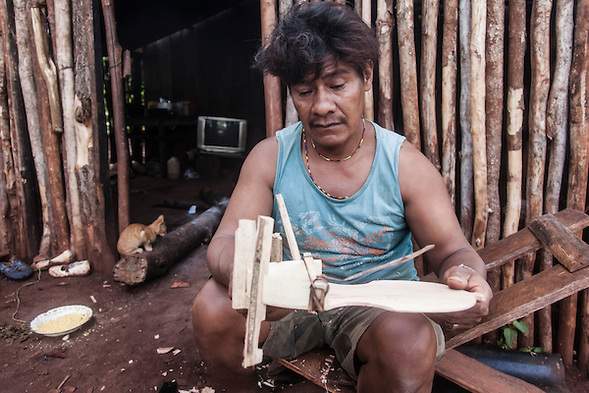Baroque Music is Alive and Well in the Bolivian Amazon
It's been 400 years guys...
in partnership with
Down a long dirt road inaccessible to most cars is a small Amazonian town where indigenous Guarani children run barefoot with handmade violins, cellos and flutes in hand.
While in the western world #1 hit songs are discarded as the dregs of music almost overnight, a small Amazon town in Bolivia's has been clinging on to Baroque music for around 400 years. First introduced in the 16th century by Jesuit missionaries, baroque music became a musical staple in the town of San Ignacio de Moxos which didn't have much other contact with the Western world until recently.
In 1767 the Spanish expelled the missionaries from the region, but the indigenous locals kept playing and making instruments anyway. "Basically, European baroque was taken by indigenous people, who then made it their own, and it is what now identifies us." says Edgar Vela, a baroque violinist from the area.
The current style of baroque being played in the Amazon is called 'missional baroque' - consisting of a fusion of indigenous instruments and melodies with classic Baroque instruments and music. The style is taught at the nearby 200-pupil San Ignacio School of Music, which is run by locals. As Celsa Callau, a soprano and soloist explains, it was important for the music to "go native", she says. "If this music managed to survive it is because we are isolated, in the middle of the jungle".
Rather than inventing entirely new songs, the school and ensemble have continued to pay tribute to the Jesuit songs their village first learnt centuries ago, as well as their native music. "What we play is music that has been kept in the dark for a long time... we are bringing that back to life, we are bringing the language of our ancestors back to this world," explains Jesus Nuni, a young cellist, while he rehearses a piece by the 17th Century Italian composer, Arcangelo Corelli. The San Ignacio School of Baroque now tour the world playing their music to audiences across the globe.
Raquel Maldonado, the director of the school sees it as a post-colonial move to re-establish identity and a sense of cultural importance. "This [musical] project is not about trying to colonise the indigenous people... that is a thing of the past. Also, it is not about baroque... it is about giving importance to the local music, so the local people can identify with this music."
Via BBC, Jason Rothe







